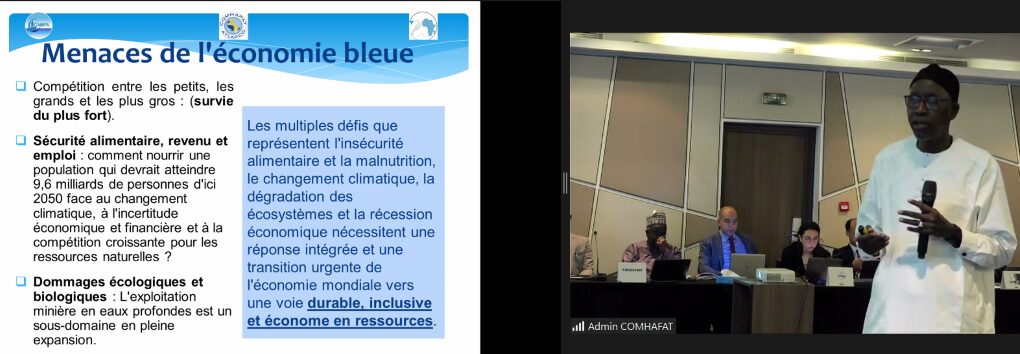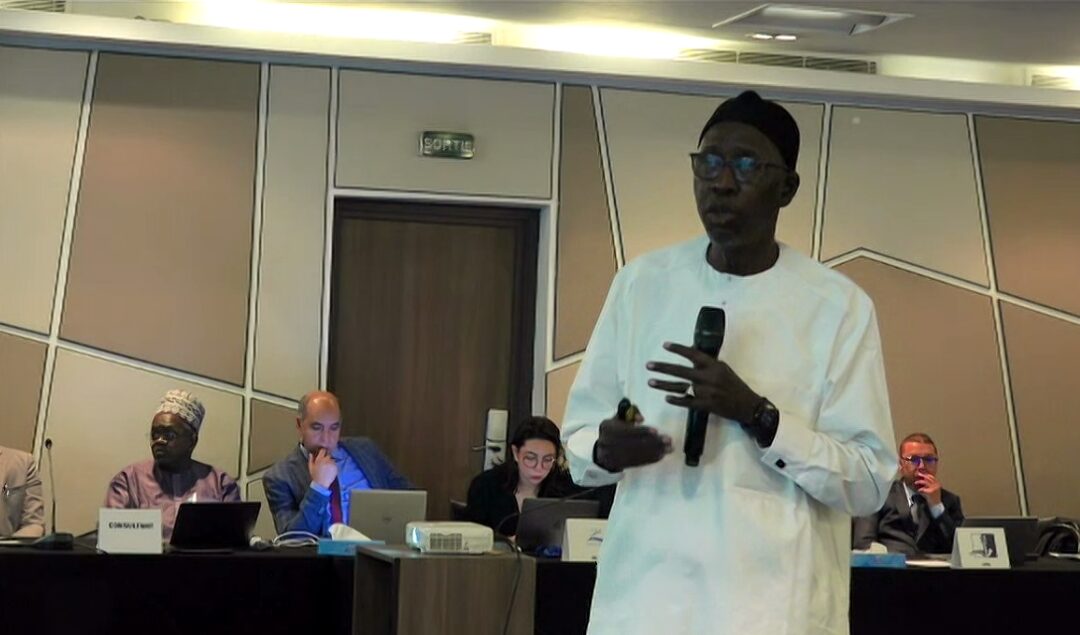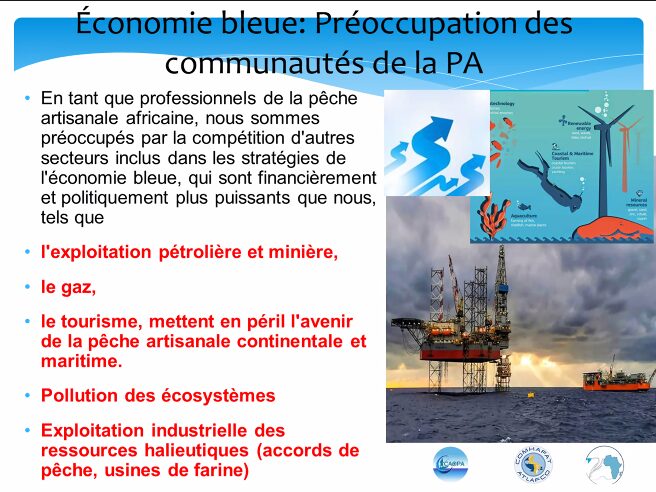On 26 and 27 March 2024, the imperial city of Fez, Morocco, is hosting a workshop on the theme of “Communication for a sustainable and inclusive blue economy”. Organised by COMHAFAT, in support of the OMPDA, this event is an ideal platform for discussing and sharing ideas on the importance of communication in promoting a sustainable and inclusive blue economy. Among the speakers, Mr Gaoussou Gueye, President of CAOPA, addressed a crucial theme: “The place of small-scale fishing in the blue economy”. But what is really meant by the “blue economy”? What are the issues and challenges for small-scale fishing?
Blue Economy: a multi-faceted concept
There is no single definition of “blue economy”. Depending on the point of view, the answers are diverse and subjective. FAO sees it as promoting “blue growth” to support food security, poverty reduction and the sustainable management of living aquatic resources. Economic theorists see it as a type of circular economy where nothing is wasted. Ocean and fishing professionals define it as the development and use of marine resources.

Small-scale fishing and the challenges of the blue economy
“As African small-scale fishing professionals, we are concerned about competition from other sectors included in the blue economy strategies, which are financially and politically more powerful than us.
Oil and mining, gas, tourism and the industrial exploitation of fisheries resources are threatening the future of small-scale inland and maritime fishing”, explained Gaoussou GUEYE.
Examples of threats to small-scale fishing
In his view, offshore oil and gas development is displacing fishing areas because of offshore installations, noise pollution and degradation of the marine environment, disrupting small-scale fishing activities. Fishmeal factories in West Africa are another threat, he says.
The “uncontrolled development” of these factories, which process small pelagics into fishmeal for aquaculture/industrial farming in Asia, Europe, etc., is in direct competition with small-scale fishing, which catches small pelagic fish for human consumption.
The need for transparency in blue economy strategies
Faced with these challenges, small-scale fishermen from six continents, including CAOPA, have drawn up a call for action at IYAFA 2022. The call underlines the importance of small-scale fishing, which is the largest sector of the ocean economy in terms of livelihoods, and also the only sector that produces food. However, livelihoods are threatened by competition and negative impacts from more powerful marine and land-based industries.
 Towards an inclusive and sustainable blue economy
Towards an inclusive and sustainable blue economy
For a harmonious solution to this problem, it is essential that the rights of communities are protected and that transparency in blue economy strategies is effective. It is also crucial that the precautionary approach guides the development of the blue economy. Blue economy activities have an impact on small-scale fisheries, and it is necessary for these activities and investments to be subject to public scrutiny.
The blue economy, a multi-faceted concept, represents a major challenge for small-scale fishing in Africa. Given the threats facing this sector, it is essential to put in place inclusive and sustainable strategies that guarantee transparency and the protection of community rights. The Fez workshop is an opportunity to think and act together for a blue economy that respects everyone.
Mamadou Aliou DIALLO



 Towards an inclusive and sustainable blue economy
Towards an inclusive and sustainable blue economy